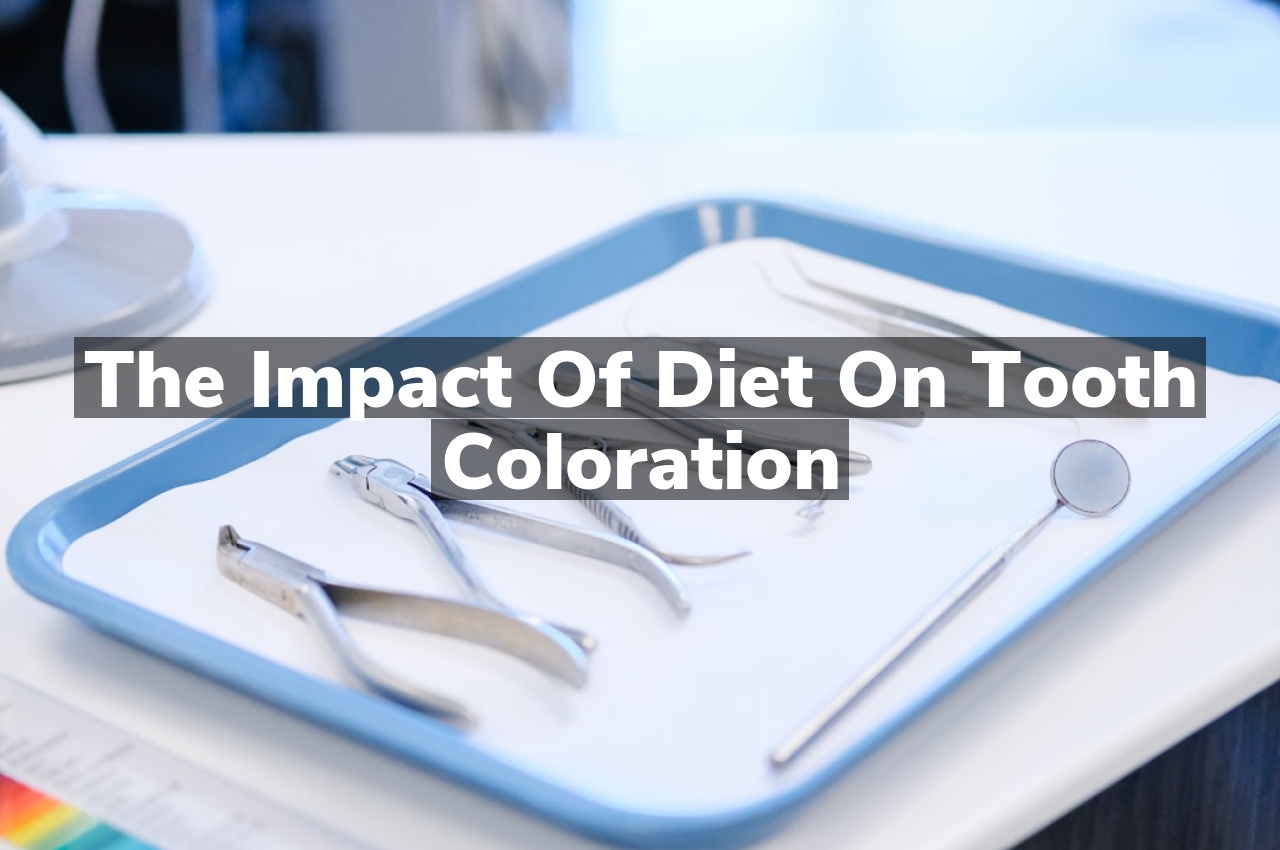Have you ever wondered how your diet on tooth coloration affects the color of your teeth? The foods and beverages we consume can play a significant role in tooth discoloration, with certain items having a more pronounced effect on our dental hue than others. Understanding this impact is crucial for maintaining the natural color of our teeth.
Foods That Darken Teeth Over Time
The foods we consume play a significant role in the coloration of our teeth. Certain foods and beverages are notorious for their ability to stain teeth over time. These include coffee, tea, red wine, and some fruits like blueberries and pomegranates. The pigments in these items, known as chromogens, attach to the enamel of the teeth, leading to discoloration. Additionally, acidic foods and drinks can exacerbate this effect by eroding the enamel, making it easier for stains to take hold.
Understanding the impact of diet on tooth coloration is crucial for maintaining a bright smile. While many seek solutions to counteract staining, it’s important to have realistic expectations about the outcomes of various treatments. For an in-depth look at what you can expect from teeth whitening procedures, consider reading Teeth Whitening: Expectations vs. Reality. This resource provides valuable insights into the effectiveness of whitening treatments in relation to dietary habits and the types of stains they can address.
Natural Tooth Coloration vs. Diet Influence
The natural color of our teeth is determined by the dentin, the core material beneath the enamel, and can vary from shades of light yellow to grayish white. This inherent coloration is unique to each individual and is influenced by genetics. However, the foods and beverages we consume play a significant role in altering the natural hue of our teeth over time. Certain consumables like coffee, tea, red wine, and some fruits and vegetables are known for their strong color pigments called chromogens that attach to the tooth enamel, leading to staining and discoloration. This interaction between diet and tooth enamel is a dynamic process, with the potential to change the appearance of one’s smile over time.
While natural tooth coloration is largely beyond our control, the impact of diet on the teeth is something that can be observed with changes in dietary habits. However, for those looking to restore their teeth to their original brightness or enhance their smile, professional teeth whitening services offer a solution. Brighten Your Smile in Kennesaw with Teeth Whitening can help counteract the effects of diet and aging on tooth coloration, leading to a more vibrant and youthful appearance.
The Role of Beverages in Staining
The impact of diet on tooth coloration is significant, with beverages playing a crucial role in the staining process. Various drinks, including coffee, tea, sodas, and certain fruit juices, contain pigments that can adhere to the surface of the teeth. Over time, these pigments can penetrate the enamel, leading to a noticeable change in tooth color. The interaction between these pigments and the tooth enamel is a natural occurrence and varies depending on the frequency and quantity of beverage consumption, as well as the overall composition of an individual’s diet. Understanding the role of beverages in staining is essential for maintaining the natural color of teeth.
How Diet Affects Enamel Health
The foods and beverages we consume play a significant role in the health and appearance of our tooth enamel. Certain dietary choices, especially those high in sugars and acids, can lead to enamel erosion over time. This erosion not only affects the strength and integrity of our teeth but can also lead to discoloration, making them appear more yellow or stained. Conversely, a diet rich in fruits, vegetables, and water can help maintain enamel health, contributing to a brighter, healthier smile. Understanding the impact of our diet on enamel health is crucial for maintaining both the aesthetics and functionality of our teeth. For those seeking professional dental care, Dentistry & Orthodontics at Kennesaw Point offers comprehensive services. Learn more about how they can help by visiting Kennesaw Dentist.
The Impact of Diet on Tooth Coloration and Plaque
The foods and beverages we consume play a significant role in the health and appearance of our teeth, particularly when it comes to plaque formation. Plaque, a sticky film of bacteria that forms on teeth, can lead to discoloration if not properly managed. Certain dietary choices, especially those high in sugars and starches, can encourage the growth of these bacteria, contributing to plaque buildup. As plaque accumulates, it can harden into tartar, a major contributor to tooth discoloration. Understanding the relationship between diet and plaque is crucial for maintaining not just oral health but also the aesthetic appeal of one’s smile.
Conclusion
Your diet plays a significant role in the coloration of your teeth. For personalized advice, call us at 678-275-2066 or read our reviews on Google Maps.







